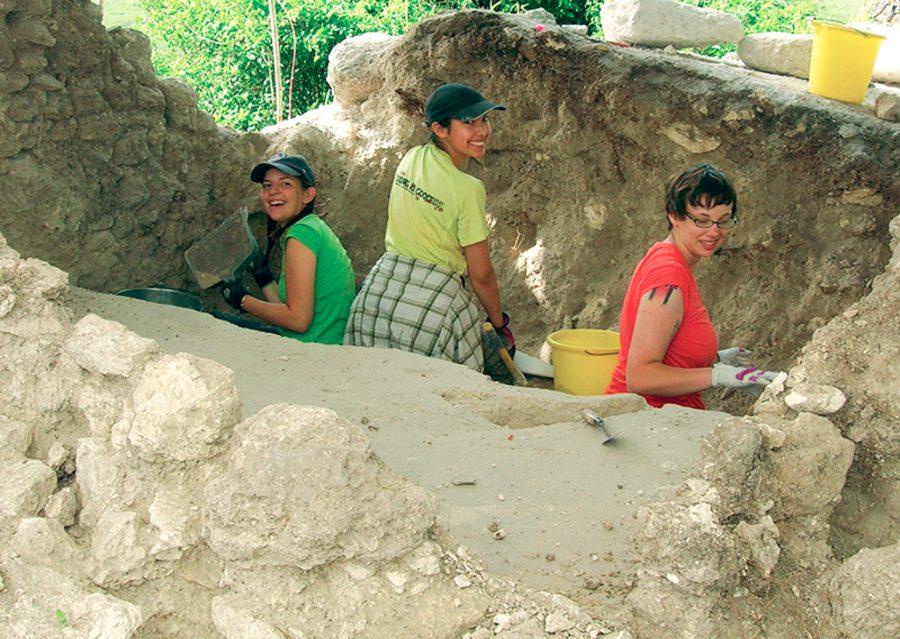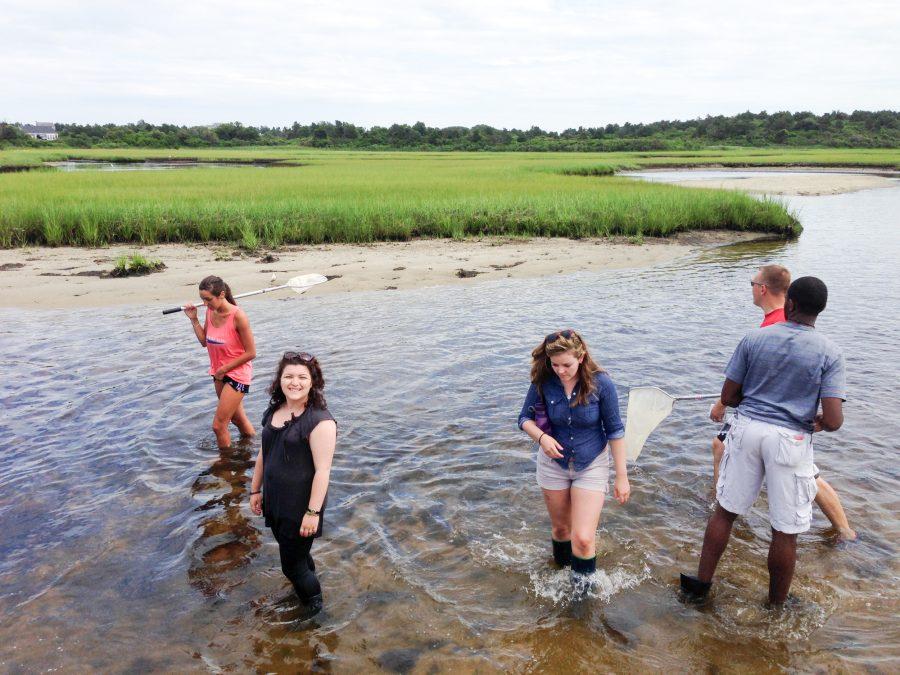During the UMass Boston Summer Session the College of Advancing and Professional Studies offers unique opportunities to achieve credits off-campus, and the option to take courses on campus too.
Off campus, students learn abroad, at the Nantucket station, or through the field school. The variety of courses taught on campus fulfill general education and distribution requirements. Additionally, online and graduate classes are available.
CAPS international programs combine traditional coursework with experiential learning. Each has a distinct topic tying into the place visited and based off the UMass Boston faculty member running it.
Examples include Food and Culture: The Italian Experience in Siena, Italy; Caribbean Society and Culture in Comparative Perspective in the Virgin Islands and Puerto Rico; and Paris: A Living Textbook.
English major Kelly Danckert participated in the program that visited Siena. Her group went on lectures that doubled as tours through the streets and past the Vatican, and received cooking lessons from Italian chef Angelo in a bakery.
“The biggest thing I took away from the course was being able to look at my own culture through an entirely different lens while appreciating the vastly different culture I found over there,” she said.
The trip to Belize offers a similar worldly adventure, but differs in that it’s a CAPS field school and focuses on archaeological digging among Mayan ruins.
Through the program, anthropology major Alejandro Miranda learned the steps of the archaeological method and about the daily life of the ruins’ former residents.
“We lived in a pretty remote area of Belize and we were allowed to explore the jungle around the camp. I made lifelong friends from all across the country,” he said.
Examples of field schools closer to home include looking for evidence of the original Pilgrim settlement in Plymouth, MA, or exploring the impact of colonialism and reservation life on the Eastern Pequot tribe in southeastern Connecticut.
After launching the Plymouth archaeological field school last summer, Professor David Landon and a group of students searched a hill with ground-piercing radar, before excavating for Pilgrim artifacts and palisade foundations.
UMass Boston also owns a field station on the island of Nantucket, where students can take biology and chemistry classes that involve the fauna and flora of the area, such as Coastal Ecology and Terrestrial Ecology of Nantucket: Spider Assemblages.
During the summer, all campus buildings remain open, although the Healey Library does so at a slightly reduced schedule. Down at the waterfront, near the Fox Point Pavilion, students can take advantage of the kayaks and sailboats, which are free when a student ID is presented. A Monday lunchtime cruise loops through the Boston Harbor.
The summer academic semester is split into two segments, April 6 to June 25 and June 29 to July 30. In-person courses operate at an accelerated pace. The price per undergraduate credit is $353 and the price per graduate credit is $490. Summer students must pay a one-time $160 fee.
Prices and durations vary for all international programs, field schools, and Nantucket summer session courses.
More information about the College of Advancing and Professional Studies summer offerings can be found on the UMass Boston website.
Students learn in the waters near the UMass Boston Nantucket Field Station.






















































